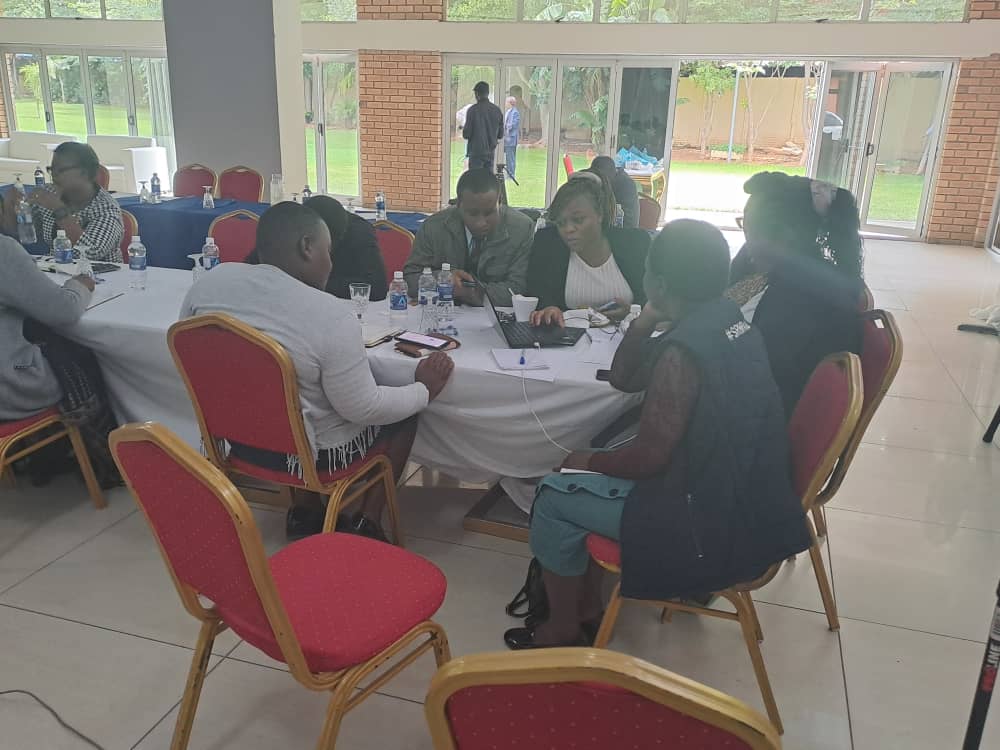Nkosentsha Khumalo
In a quest to assess and improve upon its progress of attaining the Sustainable Development Goals (SDGs), the Government of Zimbabwe convened a workshop to review the country’s economic, social, environmental and governance performance in Bulawayo yesterday.
The workshop, which unfolded at a Conference Lodge, brought together stakeholders from all walks of life, with a major aim of assessing the progress made so far and identifying areas for improvement.
With a focus on cross-sectoral collaboration, the workshop provided an opportunity for all stakeholders to share their experiences and discuss strategies for advancing the vision 2030 Agenda.
In 2015, the United Nations introduced (SDGs), a set of 17 global targets to be achieved by the year 2030. These goals include reducing poverty, improving health and education, promoting gender equality, and protecting the environment.
Countries around the world, including Zimbabwe, have been working to achieve these goals through various initiatives and programs.
As part of this effort, the Ministry of Public Service, Labour and Social Welfare has been conducting consultative engagements with various stakeholders to assess progress and identify challenges.
These findings seek to help inform future strategies and policies to ensure that Zimbabwe is on track to achieve the SDGs by 2030.
Presenting the overdraft of the symposium, Tafadzwa Tarinda the Agricultural Economist in the Ministry of Lands, Agriculture, Fisheries, Water and Rural Development said the workshop sort to unpack amongst other issues, the Mass Drug Administrations, Food Deficit Mitigation Strategy (FDMS), Drought Relief Programme being implemented by the World Food Programme (WFP) and the Ministry of Labour and Social Welfare.
Some other issues discussed included the Sustainable livelihood, Village Health Worker programme and the rolling out of 100 assistive devices for persons with disabilities and Tertiary Institutions.
The Hwange Unit 7 and 8 Thermal Power program was also at the centre of discussion amongst many other issues involved in the SDGs.
Tarinda said that emerging issues in the consultative findings included drugs and substance abuse by the youths, climate change, pests and diseases, high – staff attrition, particularly in the Health sector and demand for real time data, amongst other issues.
Zimbabwe Congress of Trade Union, Chairperson of the Western region Ambrose Sibindi stressed that other emerging challenges in attaining the country’s SDGs include unemployment, high poverty rate, behaviour of the youths and food insecurity.
He stated that Government must take action and open industries, while at the same time advocating for a national budget to boost Intreprenuers.
“The key issue especially in the labour movement is the issue of high level of unemployment. If people are out of employment, then the economy is affected adversely because even the business people are unable to maximize the income of their profits, simple because there is no market.
“High poverty levels in the community is another issue in the SDGs as bread winners are out of employment and that creates another problem. As some parents are unable to send their children to school, these youths end up taking being idle at home with nothing better to do so they end up resorting to taking drugs. “
” The Basic Education Assistance Module (BEAM) as we speak is overwhelmed and failing to send every learner needing assistance to school,”said Sibindi.
Sibindi said that the country needs a healthy nation where people can get adequate food supplies.
“We have always advocated for a national budget that will empower people to be trained and equipped with sustainable skills so that they can start and open their own businesses rather than relying on monthly salaries.”
“Most people get loans but are not adequately trained to run busineses, hence funding should be given to trained individuals who can be able to stand on their own.”
Johane Marufu, the Chief Executive Officer (CEO) at the Zimbabwe Sports Association for People living with Disabilities and also a Chapter member in the Federation of Organisation for Disabled People in Zimbabwe said he wanted to ensure that all 52 indicators for people with disabilities are also involved and discussed.
He said this with a heavy heart stressing that the stakeholders usually use degrading models for disabled people such as the traditional models or charity models.
“Stakeholders involved in the SDGs mainly use religious model, charity model, where they view us as a liability and mainly associate us with witchcraft using the traditional model. We are also viewed as a rehabilitation model where we see the donation of other needs like wheelchairs and crashes, hence this is the reason why our SDGs are comprinised.”
“We are also here to ensure that the Government implements policies that are protective of people living with disabilities and we want to find out how these people are being included in the four, economic, environment, social and governance clusters.”
Marufu added that disabled people must not be viewed as a liability but must also contribute to the country’s SDGs.
Chairlady of the Womens Structure for the Zimbabwe Chamber of Informal Economy Associations, Sarudzai Dube said most women entrepreneurs face challenges with attaining the SDGs as due to the unavailability of vending bays in Bulawayo.
She also added that most women entrepreneurs fail to sell due to the fact that they spend most of their time running away from the police.
“Most of the times we are being chased away by the police and so we need more vending bays which will serve the best interests of informal traders.”
Zim GBC News ©2024


